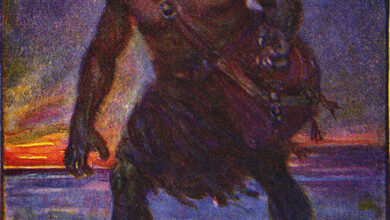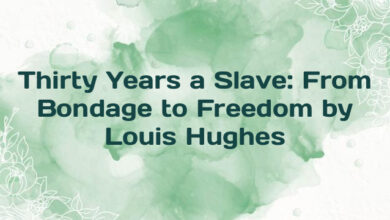
The Man Whom the Trees Loved by Algernon Blackwood
Chapter 4
“David, dear,” she observed gently as soon as they were alone upstairs, “I have a horrible uneasy feeling about that man. I cannot get rid of it.” The tremor in per voice caught all his tenderness.
He turned to look at her. “Of what kind, my dear? You’re so imaginative sometimes, aren’t you?”
“I think,” she hesitated, stammering a little, confused, still frightened, “I mean–isn’t he a hypnotist, or full of those theosophical ideas, or something of the sort? You know what I mean–“
He was too accustomed to her little confused alarms to explain them away seriously as a rule, or to correct her verbal inaccuracies, but to-night he felt she needed careful, tender treatment. He soothed her as best he could.
“But there’s no harm in that, even if he is,” he answered quietly. “Those are only new names for very old ideas, you know, dear.” There was no trace of impatience in his voice.
“That’s what I mean,” she replied, the texts he dreaded rising in an unuttered crowd behind the words. “He’s one of those things that we are warned would come–one of those Latter-Day things.” For her mind still bristled with the bogeys of the Antichrist and Prophecy, and she had only escaped the Number of the Beast, as it were, by the skin of her teeth. The Pope drew most of her fire usually, because she could understand him; the target was plain and she could shoot. But this tree-and-forest business was so vague and horrible. It terrified her. “He makes me think,” she went on, “of Principalities and Powers in high places, and of things that walk in the darkness. I did not like the way he spoke of trees getting alive in the night, and all that; it made me think of wolves in sheep’s clothing. And when I saw that awful thing in the sky above the lawn–“
But he interrupted her at once, for that was something he had decided it was best to leave unmentioned. Certainly it was better not discussed.
“He only meant, I think, Sophie,” he put in gravely, yet with a little smile, “that trees may have a measure of conscious life–rather a nice idea on the whole, surely,–something like that bit we read in the Times the other night, you remember–and that a big forest may possess a sort of Collective Personality. Remember, he’s an artist, and poetical.”
“It’s dangerous,” she said emphatically. “I feel it’s playing with fire, unwise, unsafe–“
“Yet all to the glory of God,” he urged gently. “We must not shut our ears and eyes to knowledge–of any kind, must we?”
“With you, David, the wish is always farther than the thought,” she rejoined. For, like the child who thought that “suffered under Pontius Pilate” was “suffered under a bunch of violets,” she heard her proverbs phonetically and reproduced them thus. She hoped to convey her warning in the quotation. “And we must always try the spirits whether they be of God,” she added tentatively.
“Certainly, dear, we can always do that,” he assented, getting into bed.
But, after a little pause, during which she blew the light out, David Bittacy settling down to sleep with an excitement in his blood that was new and bewilderingly delightful, realized that perhaps he had not said quite enough to comfort her. She was lying awake by his side, still frightened. He put his head up in the darkness.
“Sophie,” he said softly, “you must remember, too, that in any case between us and–and all that sort of thing–there is a great gulf fixed, a gulf that cannot be crossed–er–while we are still in the body.”
And hearing no reply, he satisfied himself that she was already asleep and happy. But Mrs. Bittacy was not asleep. She heard the sentence, only she said nothing because she felt her thought was better unexpressed. She was afraid to hear the words in the darkness. The Forest outside was listening and might hear them too–the Forest that was “roaring further out.”
And the thought was this: That gulf, of course, existed, but Sanderson had somehow bridged it.
It was much later than night when she awoke out of troubled, uneasy dreams and heard a sound that twisted her very nerves with fear. It passed immediately with full waking, for, listen as she might, there was nothing audible but the inarticulate murmur of the night. It was in her dreams she heard it, and the dreams had vanished with it. But the sound was recognizable, for it was that rushing noise that had come across the lawn; only this time closer. Just above her face while she slept had passed this murmur as of rustling branches in the very room, a sound of foliage whispering. “A going in the tops of the mulberry trees,” ran through her mind. She had dreamed that she lay beneath a spreading tree somewhere, a tree that whispered with ten thousand soft lips of green; and the dream continued for a moment even after waking.
She sat up in bed and stared about her. The window was open at the top; she saw the stars; the door, she remembered, was locked as usual; the room, of course, was empty. The deep hush of the summer night lay over all, broken only by another sound that now issued from the shadows close beside the bed, a human sound, yet unnatural, a sound that seized the fear with which she had waked and instantly increased it. And, although it was one she recognized as familiar, at first she could not name it. Some seconds certainly passed–and, they were very long ones–before she understood that it was her husband talking in his sleep.
The direction of the voice confused and puzzled her, moreover, for it was not, as she first supposed, beside her. There was distance in it. The next minute, by the light of the sinking candle flame, she saw his white figure standing out in the middle of the room, half-way towards the window. The candle-light slowly grew. She saw him move then nearer to the window, with arms outstretched. His speech was low and mumbled, the words running together too much to be distinguishable.
And she shivered. To her, sleep-talking was uncanny to the point of horror; it was like the talking of the dead, mere parody of a living voice, unnatural.
“David!” she whispered, dreading the sound of her own voice, and half afraid to interrupt him and see his face. She could not bear the sight of the wide-opened eyes. “David, you’re walking in your sleep. Do–come back to bed, dear, please!”
Her whisper seemed so dreadfully loud in the still darkness. At the sound of her voice he paused, then turned slowly round to face her. His widely-opened eyes stared into her own without recognition; they looked through her into something beyond; it was as though he knew the direction of the sound, yet cold not see her. They were shining, she noticed, as the eyes of Sanderson had shone several hours ago; and his face was flushed, distraught. Anxiety was written upon every feature. And, instantly, recognizing that the fever was upon him, she forgot her terror temporarily in practical considerations. He came back to bed without waking. She closed his eyelids. Presently he composed himself quietly to sleep, or rather to deeper sleep. She contrived to make him swallow something from the tumbler beside the bed.
Then she rose very quietly to close the window, feeling the night air blow in too fresh and keen. She put the candle where it could not reach him. The sight of the big Baxter Bible beside it comforted her a little, but all through her under-being ran the warnings of a curious alarm. And it was while in the act of fastening the catch with one hand and pulling the string of the blind with the other, that her husband sat up again in bed and spoke in words this time that were distinctly audible. The eyes had opened wide again. He pointed. She stood stock still and listened, her shadow distorted on the blind. He did not come out towards her as at first she feared.
The whispering voice was very clear, horrible, too, beyond all she had ever known.
“They are roaring in the Forest further out… and I… must go and see.” He stared beyond her as he said it, to the woods. “They are needing me. They sent for me….” Then his eyes wandering back again to things within the room, he lay down, his purpose suddenly changed. And that change was horrible as well, more horrible, perhaps, because of its revelation of another detailed world he moved in far away from her.
The singular phrase chilled her blood, for a moment she was utterly terrified. That tone of the somnambulist, differing so slightly yet so distressingly from normal, waking speech, seemed to her somehow wicked. Evil and danger lay waiting thick behind it. She leaned against the window-sill, shaking in every limb. She had an awful feeling for a moment that something was coming in to fetch him.
“Not yet, then,” she heard in a much lower voice from the bed, “but later. It will be better so… I shall go later….”
The words expressed some fringe of these alarms that had haunted her so long, and that the arrival and presence of Sanderson seemed to have brought to the very edge of a climax she could not even dare to think about. They gave it form; they brought it closer; they sent her thoughts to her Deity in a wild, deep prayer for help and guidance. For here was a direct, unconscious betrayal of a world of inner purposes and claims her husband recognized while he kept them almost wholly to himself.
By the time she reached his side and knew the comfort of his touch, the eyes had closed again, this time of their own accord, and the head lay calmly back upon the pillows. She gently straightened the bed clothes. She watched him for some minutes, shading the candle carefully with one hand. There was a smile of strangest peace upon the face.
Then, blowing out the candle, she knelt down and prayed before getting back into bed. But no sleep came to her. She lay awake all night thinking, wondering, praying, until at length with the chorus of the birds and the glimmer of the dawn upon the green blind, she fell into a slumber of complete exhaustion.
But while she slept the wind continued roaring in the Forest further out. The sound came closer–sometimes very close indeed.
Chapter 5
With the departure of Sanderson the significance of the curious incidents waned, because the moods that had produced them passed away. Mrs. Bittacy soon afterwards came to regard them as some growth of disproportion that had been very largely, perhaps, in her own mind. It did not strike her that this change was sudden for it came about quite naturally. For one thing her husband never spoke of the matter, and for another she remembered how many things in life that had seemed inexplicable and singular at the time turned out later to have been quite commonplace.
Most of it, certainly, she put down to the presence of the artist and to his wild, suggestive talk. With his welcome removal, the world turned ordinary again and safe. The fever, though it lasted as usual a short time only, had not allowed of her husband’s getting up to say good-bye, and she had conveyed his regrets and adieux. In the morning Mr. Sanderson had seemed ordinary enough. In his town hat and gloves, as she saw him go, he seemed tame and unalarming.
“After all,” she thought as she watched the pony-cart bear him off, “he’s only an artist!” What she had thought he might be otherwise her slim imagination did not venture to disclose. Her change of feeling was wholesome and refreshing. She felt a little ashamed of her behavior. She gave him a smile–genuine because the relief she felt was genuine–as he bent over her hand and kissed it, but she did not suggest a second visit, and her husband, she noted with satisfaction and relief, had said nothing either.
The little household fell again into the normal and sleepy routine to which it was accustomed. The name of Arthur Sanderson was rarely if ever mentioned. Nor, for her part, did she mention to her husband the incident of his walking in his sleep and the wild words he used. But to forget it was equally impossible. Thus it lay buried deep within her like a center of some unknown disease of which it was a mysterious symptom, waiting to spread at the first favorable opportunity. She prayed against it every night and morning: prayed that she might forget it–that God would keep her husband safe from harm.
For in spite of much surface foolishness that many might have read as weakness. Mrs. Bittacy had balance, sanity, and a fine deep faith. She was greater than she knew. Her love for her husband and her God were somehow one, an achievement only possible to a single-hearted nobility of soul.
There followed a summer of great violence and beauty; of beauty, because the refreshing rains at night prolonged the glory of the spring and spread it all across July, keeping the foliage young and sweet; of violence, because the winds that tore about the south of England brushed the whole country into dancing movement. They swept the woods magnificently, and kept them roaring with a perpetual grand voice. Their deepest notes seemed never to leave the sky. They sang and shouted, and torn leaves raced and fluttered through the air long before their usually appointed time. Many a tree, after days of roaring and dancing, fell exhausted to the ground. The cedar on the lawn gave up two limbs that fell upon successive days, at the same hour too–just before dusk. The wind often makes its most boisterous effort at that time, before it drops with the sun, and these two huge branches lay in dark ruin covering half the lawn. They spread across it and towards the house. They left an ugly gaping space upon the tree, so that the Lebanon looked unfinished, half destroyed, a monster shorn of its old-time comeliness and splendor. Far more of the Forest was now visible than before; it peered through the breach of the broken defenses. They could see from the windows of the house now–especially from the drawing-room and bedroom windows–straight out into the glades and depths beyond.
Mrs. Bittacy’s niece and nephew, who were staying on a visit at the time, enjoyed themselves immensely helping the gardeners carry off the fragments. It took two days to do this, for Mr. Bittacy insisted on the branches being moved entire. He would not allow them to be chopped; also, he would not consent to their use as firewood. Under his superintendence the unwieldy masses were dragged to the edge of the garden and arranged upon the frontier line between the Forest and the lawn. The children were delighted with the scheme. They entered into it with enthusiasm. At all costs this defense against the inroads of the Forest must be made secure. They caught their uncle’s earnestness, felt even something of a hidden motive that he had; and the visit, usually rather dreaded, became the visit of their lives instead. It was Aunt Sophia this time who seemed discouraging and dull.
“She’s got so old and funny,” opined Stephen.
But Alice, who felt in the silent displeasure of her aunt some secret thing that alarmed her, said:
“I think she’s afraid of the woods. She never comes into them with us, you see.”
“All the more reason then for making this wall impreg–all fat and thick and solid,” he concluded, unable to manage the longer word. “Then nothing–simply nothing–can get through. Can’t it, Uncle David?”
And Mr. Bittacy, jacket discarded and working in his speckled waistcoat, went puffing to their aid, arranging the massive limb of the cedar like a hedge.
“Come on,” he said, “whatever happens, you know, we must finish before it’s dark. Already the wind is roaring in the Forest further out.” And Alice caught the phrase and instantly echoed it. “Stevie,” she cried below her breath, “look sharp, you lazy lump. Didn’t you hear what Uncle David said? It’ll come in and catch us before we’ve done!”
They worked like Trojans, and, sitting beneath the wisteria tree that climbed the southern wall of the cottage, Mrs. Bittacy with her knitting watched them, calling from time to time insignificant messages of counsel and advice. The messages passed, of course, unheeded. Mostly, indeed, they were unheard, for the workers were too absorbed. She warned her husband not to get too hot, Alice not to tear her dress, Stephen not to strain his back with pulling. Her mind hovered between the homeopathic medicine-chest upstairs and her anxiety to see the business finished.
For this breaking up of the cedar had stirred again her slumbering alarms. It revived memories of the visit of Mr. Sanderson that had been sinking into oblivion; she recalled his queer and odious way of talking, and many things she hoped forgotten drew their heads up from that subconscious region to which all forgetting is impossible. They looked at her and nodded. They were full of life; they had no intention of being pushed aside and buried permanently. “Now look!” they whispered, “didn’t we tell you so?” They had been merely waiting the right moment to assert their presence. And all her former vague distress crept over her. Anxiety, uneasiness returned. That dreadful sinking of the heart came too.
This incident of the cedar’s breaking up was actually so unimportant, and yet her husband’s attitude towards it made it so significant. There was nothing that he said in particular, or did, or left undone that frightened, her, but his general air of earnestness seemed so unwarranted. She felt that he deemed the thing important. He was so exercised about it. This evidence of sudden concern and interest, buried all the summer from her sight and knowledge, she realized now had been buried purposely, he had kept it intentionally concealed. Deeply submerged in him there ran this tide of other thoughts, desires, hopes. What were they? Whither did they lead? The accident to the tree betrayed it most unpleasantly, and, doubtless, more than he was aware.
She watched his grave and serious face as he worked there with the children, and as she watched she felt afraid. It vexed her that the children worked so eagerly. They unconsciously supported him. The thing she feared she would not even name. But it was waiting.
Moreover, as far as her puzzled mind could deal with a dread so vague and incoherent, the collapse of the cedar somehow brought it nearer. The fact that, all so ill-explained and formless, the thing yet lay in her consciousness, out of reach but moving and alive, filled her with a kind of puzzled, dreadful wonder. Its presence was so very real, its power so gripping, its partial concealment so abominable. Then, out of the dim confusion, she grasped one thought and saw it stand quite clear before her eyes. She found difficulty in clothing it in words, but its meaning perhaps was this: That cedar stood in their life for something friendly; its downfall meant disaster; a sense of some protective influence about the cottage, and about her husband in particular, was thereby weakened.
“Why do you fear the big winds so?” he had asked her several days before, after a particularly boisterous day; and the answer she gave surprised her while she gave it. One of those heads poked up unconsciously, and let slip the truth.
“Because, David, I feel they–bring the Forest with them,” she faltered. “They blow something from the trees–into the mind–into the house.”
He looked at her keenly for a moment.
“That must be why I love them then,” he answered. “They blow the souls of the trees about the sky like clouds.”
The conversation dropped. She had never heard him talk in quite that way before.
And another time, when he had coaxed her to go with him down one of the nearer glades, she asked why he took the small hand-axe with him, and what he wanted it for.
“To cut the ivy that clings to the trunks and takes their life away,” he said.
“But can’t the verdurers do that?” she asked. “That’s what they’re paid for, isn’t it?”
Whereupon he explained that ivy was a parasite the trees knew not how to fight alone, and that the verdurers were careless and did not do it thoroughly. They gave a chop here and there, leaving the tree to do the rest for itself if it could.
“Besides, I like to do it for them. I love to help them and protect,” he added, the foliage rustling all about his quiet words as they went.
And these stray remarks, as his attitude towards the broken cedar, betrayed this curious, subtle change that was going forward to his personality. Slowly and surely all the summer it had increased.
It was growing–the thought startled her horribly–just as a tree grows, the outer evidence from day to day so slight as to be unnoticeable, yet the rising tide so deep and irresistible. The alteration spread all through and over him, was in both mind and actions, sometimes almost in his face as well. Occasionally, thus, it stood up straight outside himself and frightened her. His life was somehow becoming linked so intimately with trees, and with all that trees signified. His interests became more and more their interests, his activity combined with theirs, his thoughts and feelings theirs, his purpose, hope, desire, his fate–
His fate! The darkness of some vague, enormous terror dropped its shadow on her when she thought of it. Some instinct in her heart she dreaded infinitely more than death–for death meant sweet translation for his soul–came gradually to associate the thought of him with the thought of trees, in particular with these Forest trees. Sometimes, before she could face the thing, argue it away, or pray it into silence, she found the thought of him running swiftly through her mind like a thought of the Forest itself, the two most intimately linked and joined together, each a part and complement of the other, one being.
The idea was too dim for her to see it face to face. Its mere possibility dissolved the instant she focused it to get the truth behind it. It was too utterly elusive, made, protæan. Under the attack of even a minute’s concentration the very meaning of it vanished, melted away. The idea lay really behind any words that she could ever find, beyond the touch of definite thought.
Her mind was unable to grapple with it. But, while it vanished, the trail of its approach and disappearance flickered a moment before her shaking vision. The horror certainly remained.
Reduced to the simple human statement that her temperament sought instinctively, it stood perhaps at this: Her husband loved her, and he loved the trees as well; but the trees came first, claimed parts of him she did not know. She loved her God and him. He loved the trees and her.
Thus, in guise of some faint, distressing compromise, the matter shaped itself for her perplexed mind in the terms of conflict. A silent, hidden battle raged, but as yet raged far away. The breaking of the cedar was a visible outward fragment of a distant and mysterious encounter that was coming daily closer to them both. The wind, instead of roaring in the Forest further out, now cam nearer, booming in fitful gusts about its edge and frontiers.
Meanwhile the summer dimmed. The autumn winds went sighing through the woods, leaves turned to golden red, and the evenings were drawing in with cozy shadows before the first sign of anything seriously untoward made its appearance. It came then with a flat, decided kind of violence that indicated mature preparation beforehand. It was not impulsive nor ill-considered. In a fashion it seemed expected, and indeed inevitable. For within a fortnight of their annual change to the little village of Seillans above St. Raphael–a change so regular for the past ten years that it was not even discussed between them–David Bittacy abruptly refused to go.
Thompson had laid the tea-table, prepared the spirit lamp beneath the urn, pulled down the blinds in that swift and silent way she had, and left the room. The lamps were still unlit. The fire-light shone on the chintz armchairs, and Boxer lay asleep on the black horse-hair rug. Upon the walls the gilt picture frames gleamed faintly, the pictures themselves indistinguishable. Mrs. Bittacy had warmed the teapot and was in the act of pouring the water in to heat the cups when her husband, looking up from his chair across the hearth, made the abrupt announcement:
“My dear,” he said, as though following a train of thought of which she only heard this final phrase, “it’s really quite impossible for me to go.”
And so abrupt, inconsequent, it sounded that she at first misunderstood. She thought he meant to go out into the garden or the woods. But her heart leaped all the same. The tone of his voice was ominous.
“Of course not,” she answered, “it would be most unwise. Why should you–?” She referred to the mist that always spread on autumn nights upon the lawn, but before she finished the sentence she knew that he referred to something else. And her heart then gave its second horrible leap.
“David! You mean abroad?” she gasped.
“I mean abroad, dear, yes.”
It reminded her of the tone he used when saying good-bye years ago, before one of those jungle expeditions she dreaded. His voice then was so serious, so final. It was serious and final now. For several moments she could think of nothing to say. She busied herself with the teapot. She had filled one cup with hot water till it overflowed, and she emptied it slowly into the slop-basin, trying with all her might not to let him see the trembling of her hand. The firelight and the dimness of the room both helped her. But in any case he would hardly have noticed it. His thoughts were far away….




